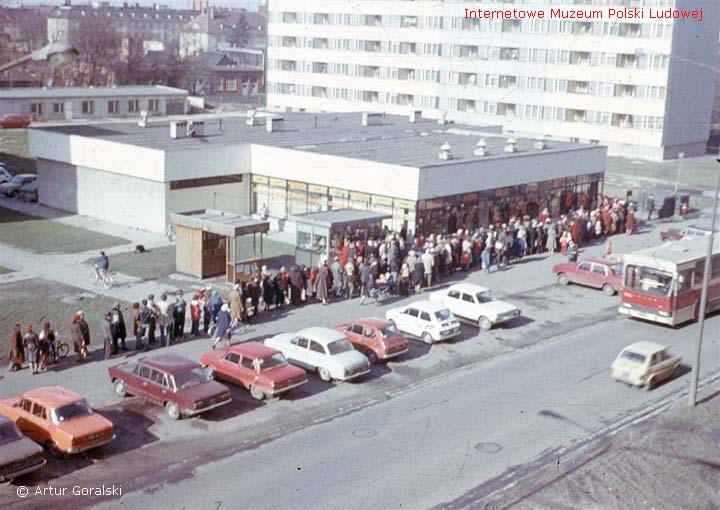 Leiska, on 08 May 2013 - 05:23 PM, said:
Leiska, on 08 May 2013 - 05:23 PM, said:
Let me get this straight: you're making the point that most things should not be owned by anyone? People have owned things for millennia and trying to revert that violates a person's fundamental freedoms. The body ought to be free from coercion and for that to be true also the fruits of the body's labour need to be free. It's not only a moral argument, it's also a practical one: private property motivates people to be prudent and industrious, common property does not.
That is correct, most things should be in the realm of shared resources since you so aptly note below that they are finite in expression. As Proudhon notes, "Property is Theft." Funny thing about capitalism is it drives for an infinite profit on the assumption of infinite goods (and resources to back them).
For the thousands of years people have "owned" things, the vast majority of the population for all of that time has owned very little to the benefit of an extreme minority of ruling class. I'm not suggesting we do away with individual households, or basic goods and necessities. I am suggesting that the houses on the hills be turned into community centers, and the rich be eaten.
By the way, I work for the government, and we have a public toilet which stays quite clean despite a few hundred a day using it. Cleaning it is a job like any other, although the employee who does so receives better wages and benefits than I do at a desk.
Quote
That government only lasted a few years and I don't know enough about it to debate it. I do know that it wasn't stable, though. Perhaps it was not as successful as you'd like to think?

sends the Condor Legion in for the first use of Blitz tactics, your lauded capitalist loves put trade blockades in regards to arms, ammunition, and volunteers on the Spanish Republicans, and you're surprised it lasted only a few years?
Blame the corporations you would have rule us all for their short tenure, not the system of governance in an era where distributed technology and democracy was much more difficult than it is today (nearly a century later).
Quote
First of all, resources are scarce. There are finite natural resources, finite capital goods and finite human resources. Why you'd think otherwise is a mystery. Secondly, if you are to receive according to need and are to provide according to capability, you'll very soon find people's needs mysteriously inflate and capabilities shrink. This is because a system like this encourages you to appear as helpless as possible.
Open with another strawman, huzzah! You can eliminate scarcity on a practicable level by making
those goods available to the general public at large. A Ferrari is a lot less sought after if you can drive one after X amount of work tokens, or similar.
"...you'll very soon find people's needs mysteriously inflate and capabilities shrink."
You don't want to interact with relevant cites and sources of economies that suggest otherwise, and you want to make no effort to engage those ideas outside of your capitalist money-driven framework. I suppose it is hard to blame you since you have been indoctrinated since you were young with the notion that this is the only means of organizing society.
Bakunin, Goldman, Makhno, Durruti, Malatesta, to name a few, did not preach for the entitled classes that seek to protect their thefts of the products of labor; perhaps you cannot hear their testament for that reason? Chomsky and Zinn are modern incarnations of writers/lecturers striving for a more equitable division of resources and labor, but I'm sure you've got convenient reasons they're all wrong/not worth reading because muh subscription to The Economist / Wall Street Journal.
Quote
How do you know the boss isn't sharing equally in the work? It's impossible for you alone to make that judgement because it'll be a completely subjective one. The only entity fit to evaluate the value of ones efforts is the free market and it does it by putting a price on it. A market price contains all information and valuations held by the collective, which is what makes free prices so amazingly potent at resource allocation within an economy and price fixing so incredibly disruptive.
Ask a hypothetical that cannot be answered without specific circumstance, bravo! You know there are other fallacies you can use. In my own situation, I know that he does not share equally because I
draft his correspondence to the county executives, run his phones, file his forms, and assist him when he doesn't know how to use the insert key.
Quote
No, my conclusion is that Friedman lectured at universities, some of his students went on to become influential economists in Chile and they had a profound impact on Pinochet’s administration.
You denied that there was any involvement before that, glad to see you shift position when it is convenient for you.
Quote
Please do tell me why that is not a suitable standard. If Chile beats the average, it's going to beat most (in this case, I believe all) of the components of that average.
Take a course in statistics, you stooge. Generalizations do not a data-set make.
Quote
I said no such thing, or at least I didn’t mean to. You must have misunderstood something.
I quoted the passage where your hyperbole is clearly visible, and you're now denying your own words. I understand it can be difficult to keep a position when someone notes that it is incorrect, but don't ascribe a failing of reading comprehension to your own inaccurate assumptions.
Quote
This is an absurd argument. You might as well argue for the abolishment of electricity, hoping it'd open jobs to replace all our automated systems.
Its an absurd argument in response to another one, conveniently quoted above. See, if you don't remember what my words are in reference to, you can go look at yours, and put that together. Beauty of persistence, huh?
"It's time to move on and allow progress towards a more prosperous mankind to happen."
Move on to your perfect capitalist dream where corporations are free to enslave who they want without the nasty encumbrances of labor law, security regulations, OSHA, or unions. Are you Scott Walker's internet persona?
Quote
I don't see it. When some anarchist does come to my door to claim what little property I have back to the commons, he'll have to pry it from my cold, dead hands.
You're lucky the revolution is highly unlikely to happen from within our current framework of greed, opulence, and the capital of empire. We'll sooner burn from without, a la the Vandals and Rome.
Still, if I am wrong, and it does come to pass that the workers develop the consciousness necessary to overcome class shills like you, I'd watch your tongue, lest you lose it.
Edited by Lee Ving, 09 May 2013 - 07:14 AM.
 Ian Marcus Kain, on 06 May 2013 - 10:35 AM, said:
Ian Marcus Kain, on 06 May 2013 - 10:35 AM, said:































